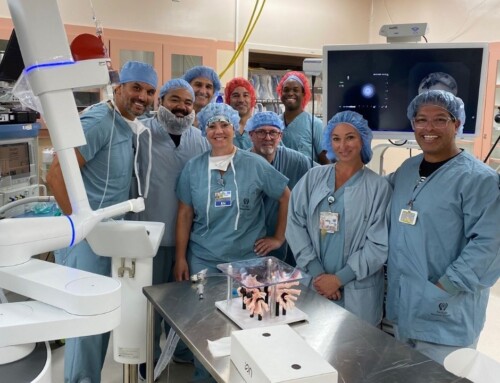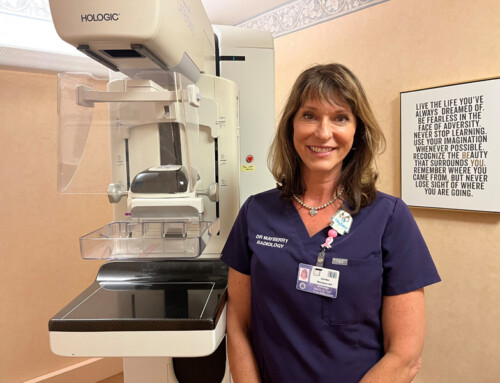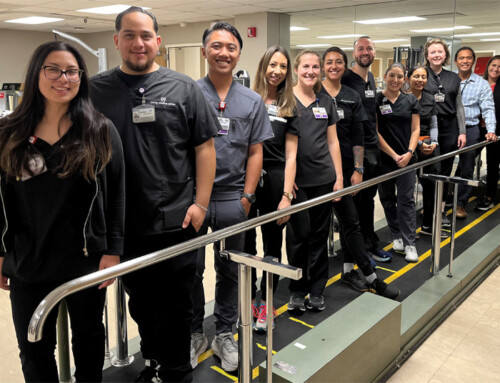 When’s the last time you thought about your colon? Was it the last time you packed your own lunch, had a stomach ache, or maybe felt bloated after a restaurant meal?
When’s the last time you thought about your colon? Was it the last time you packed your own lunch, had a stomach ache, or maybe felt bloated after a restaurant meal?
If you’re like most people, the answer is “none of the above.” Most of us never think about our colons, even when they’re acting up or causing us pain!
For some of us, digestive discomfort has become a fact of life — like not getting enough sleep, or having too much to do at work. We complain about bloating and stomach pain, while assuming there’s nothing we can do to change it. Others avoid thinking about their colons, simply because it’s connected to unpleasant bodily functions — yet taking the time to push past the “yuck factor” and think about your colon can improve your health dramatically.
Just a few simple changes may be all it takes to boost your energy levels, improve your day-to-day comfort, and reduce your risk of colon cancer and other diseases.
1. Eat a Pescovegetarian Diet
You don’t necessarily have to go meat-free to have a healthy colon, but cutting down on red meats is a good idea. Multiple studies have linked the excessive consumption of red meat to a higher risk of colon cancer. You already know exercise and healthy lifestyle habits can help you avoid disease; but going pescovegetarian may be the best way to minimize your risk factors for good!
A new study indicates that the pescovegetarian diet — a vegetarian-based diet with a focus on adding fish to meals — is perfect for fighting back against colon cancer. The study found that those who ate a pescovegetarian diet saw a reduction in risk of around 43% — possibly because of the beneficial omega-3 fatty acids in fish.
2. Get Moving
Not only does physical activity keep you feeling great, but regular exercise aids in proper digestion — pushing food along your digestive system, and making the process of passing waste much easier.
Most of us spend hours each day in front of desks, computers, and television screens. Sitting down for most of your day puts a kink in the digestive process, actually making it harder for your body to process food. The result? When the times comes to go to the bathroom, your colon has a lot more work to do.
An easy fix is to simply walk a little bit each day — make a point to take a quick walk around the office mid-morning, or go for a stroll each night after dinner. Consider turning your evening walk into a family activity, for a nice bonding experience.
3. Give Your Body More Vitamin D
One of the best vitamins you can stock up on for colon health is vitamin D — you probably recognize it as the one that comes from the sun. Naturally, the best way to get it is to go outside!
Even if you work indoors for most of the day, it’s easier than you think to get more vitamin D into your system. All you need is around 20 minutes of daily exposure (wearing sunscreen to prevent burns), and you’ll have a well-nourished colon in no time. If you can’t get enough sun all year round, eat foods like fatty fish, bread, cereal, and milk to give your body a natural vitamin D boost; or, ask your doctor about vitamin D supplements.
4. Get Tested
Getting regular screening tests for colon cancer is one of the most effective ways you can protect yourself from this disease. Screening can catch problems early, when they’re the most treatable — so you can get back to living your life.
Most people start getting tested at the age of 50, but if you have a family history of colon cancer, or other risk factors in your medical history, you should get tested earlier. Speak to your doctor about colonoscopies, particularly if you experience ongoing constipation or diarrhea.
5. Avoid Bad Habits (Including Stress)
Everything from coffee to alcohol can impact the way your digestive system — and your colon, in particular — functions. Overindulging in these substances can quickly lead to issues like heartburn and stomach ulcers. If you have a bad habit related to cigarettes, alcohol, or other substances, look for resources to help you cut back and ultimately quit.
Bad habits don’t just involve physical substances. Many of us have a bad habit of allowing stress to invade our lives. Frequent anxiety and stress can push your digestive system into overdrive. Yoga and meditation practices lower stress for many people, while others find breathing techniques or relaxing hobbies — like reading, coloring, or brain puzzles — to be effective stress reducers.
Speaking of bad habits, remember to take time to relax and chew your meals. In our fast-paced society, we’re all prone to eating food as quickly as possible, but chewing is crucial when it comes to supporting your digestive system and colon. Experts recommend that you should chew each bite 30 times before swallowing!
6. Change Your Bathroom Behavior
No matter how busy you are — at work, at home, or on the move — if you feel a bowel movement coming, don’t hold it in! Find a bathroom as quickly as you can. Holding onto your movements can be dangerous, because this allows for the release of toxins back into your body.
If you struggle with bathroom movements, there may be a problem with the way you’re sitting. Evidence suggests that bathroom posture can be a serious problem. Research shows that squatting is not only more natural and efficient, but can help you to avoid digestive disturbances and hemorrhoids, too.
Give Your Colon the Consideration it Deserves
The American Cancer Society (ACS) estimates almost 100,000 colon cancer diagnoses are made each year. An even bigger number of people suffer with aches, pains, and discomfort because we don’t think carefully enough about the food we eat. Your colon is far more than just a way to get rid of waste — it’s essential to your overall health!
Consider your colon when you sit down for a meal, step outside for a bit of sunshine, or hold back from having that extra drink. You’ll be pleased to see how much better you feel each day when you promote good digestive health. When you take care of your colon, it can do its job to take care of you.





